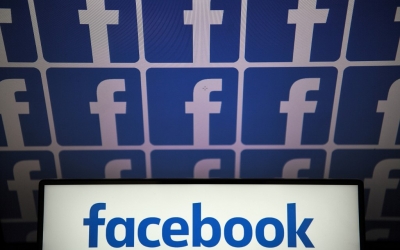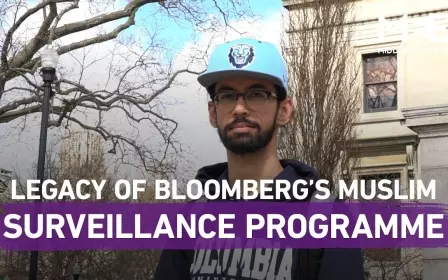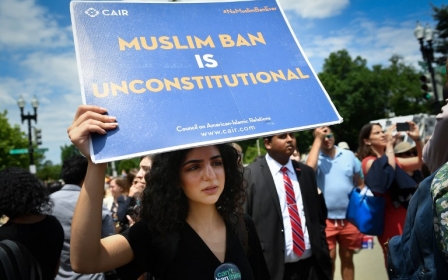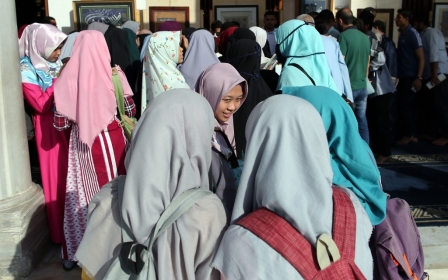Muslim Pro: How tech capitalism turns prayer data into profit
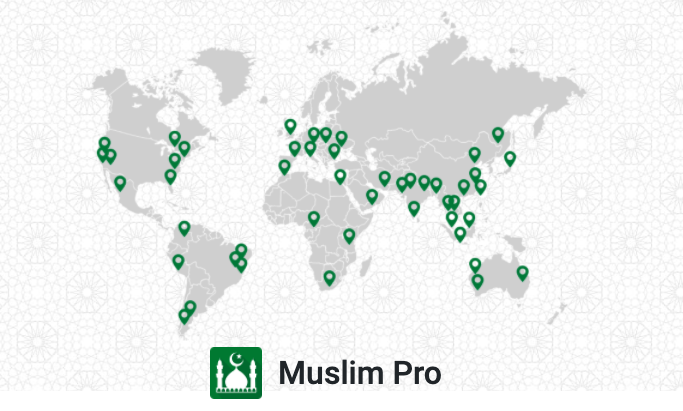
Last month, a Vice Motherboard report revealed that the US military is collecting movement data on people all over the world by purchasing it through third-party applications, including Muslim Pro, a location-reliant app that informs Muslims of prayer times and the direction of Mecca. It has been downloaded more than 98 million times.
While these revelations shocked many, they were not surprising in the least. The revelations track with longstanding patterns of US government surveillance and targeting of Black and brown communities in the country and elsewhere.
But the story brought into sharp relief the newest dimension of the state surveillance apparatus, which is ordinarily at the nexus of the military-industrial complex, neoliberal capital accumulation and the “war on terror”: namely, smart technology.
Troubling history
The revelations come as the country prepares to transition to the presidency of Joe Biden, whose role as vice president in the Obama administration saw an expansion of domestic surveillance and global drone warfare, both of which have overwhelmingly targeted Muslims. The rank disregard for the civilian costs of drone warfare in particular was clear in Obama’s recent memoir, which blithely glossed over the disastrous consequences of his policies.
New MEE newsletter: Jerusalem Dispatch
Sign up to get the latest insights and analysis on Israel-Palestine, alongside Turkey Unpacked and other MEE newsletters
Given this troubling history, the US military having access to the prayer data of around 100 million Muslims from all over the world should be cause for alarm. But how did we get here?
With increasing deregulation came a boon in weapons manufacturing and trade, and with the war on terror came unending rationalisations for American forever wars
The term “military-industrial complex” was coined by former US president Dwight D Eisenhower - who was a five-star general and hardly an antiwar activist - in his farewell speech in 1961, as he warned that “we must guard against the acquisition of unwarranted influence, whether sought or unsought, by the military-industrial complex,” and that “the potential for the disastrous rise of misplaced power exists and will persist”.
Eisenhower gave this speech during the Vietnam War and against the backdrop of rising anti-communist sentiment and a civil rights movement (in which Martin Luther King Jr would give one of his most famous speeches against the war). Thereafter, the rapid economic privatisation of Reaganite neoliberalism and the post-9/11 war on terror would produce exactly the ominous results Eisenhower portended.
With increasing deregulation came a boon in weapons manufacturing and trade, and with the war on terror came unending rationalisations for American forever wars. Now, two decades into the 21st century, we are witnessing the cynical use of smart technology to further expand the war’s reach through powerful tech companies.
Discriminatory policies
Why would the US military want the prayer data of 100 million Muslims? Because racialised and discriminatory logic equating Muslim practices with a propensity for violence has long driven state suspicion of Muslims, both domestically and abroad.
Take the New York Police Department, which in 2007 released a report entitled “Radicalization in the West: The Homegrown Threat”. It claimed to identify social and behavioural patterns among Muslims that could predict acts of terrorism. These included wearing clothing that typified “Islamic” attire, regularly attending mosque, and abstaining from drugs and alcohol, all of which encapsulate everyday Muslim religious practices.
Despite the report being debunked and subsequently terminated through a lawsuit (full disclosure: I was a co-plaintiff), its logic continues to undergird local, state and national efforts at counterterrorism through “Countering Violent Extremism” (CVE) policies, as part of a larger structural ecosystem that scholar Junaid Rana calls the “terror–industrial complex”.
In the post-9/11 world, we are seeing the outsourcing of surveillance from the state to private entities through CVE policies, corporations and contractors, and even individuals (“If you see something, say something”).
While CVE methods outsource Muslim surveillance to mental health counsellors and teachers, seeking to modify behaviour through personal interventions, the methods of surveillance capitalism may aim to do the same through tech applications.
As scholar Shoshana Zuboff argues, “surveillance capitalism” is the next stage of capitalist development, where instead of dominating and commodifying the natural world for market growth, the human becomes the commodity. In this case, the raw data of our everyday choices is collected from major applications and then sold to the highest bidder - often the state. This aggregate data is then manipulated to influence and modify behavioural patterns in the service of profit, through what Zuboff calls “instrumentarian power”.
21st-century material realities
If the very observance of Islam and its potency as a source of global solidarity have been deemed a threat by the US empire, it should not be surprising that tracing the movements of Muslims and aiming to reshape their behaviours through discriminatory interventions would be the ultimate policy goal.
Surveillance capitalism, like industrial capitalism, has a racialised dimension, which makes Black and brown communities particularly vulnerable to being targeted. As Rana writes, we must pay attention to “the larger systems of structural violence that are normalized through the workings of concepts such as race and permanent war that create an unprecedented flexibility in the workings of social domination and capital accumulation”.
Given the centrality of capital as an engine in world-making, no critique of Islamophobia is complete without a critique of capitalist modernity and its attendant structures of violence. Surveillance capitalism is just its newest weapon.
It is crucial, then, to advance an analysis of Islamophobia and the war on terror that is historically rooted, but also accounts for 21st-century material realities. Major tech corporations such as Facebook and Twitter, and apps such as Muslim Pro, are not neutral conduits for registering and conveying information. They are products of human beings who make conscious decisions about what gets censored and what does not, what gets sold to the military and what does not.
Whether it be inciting genocide against Muslims or spreading hate campaigns against them, choices are made every day as to whether or not these should be platformed.
Rethinking our relationship with tech
The tech corporations that facilitate this violence must be held accountable through transparency and oversight mechanisms - drawn from a larger framework of collective and individual digital rights - that are produced through consensus-based democratic methods, led by concerned citizens and legislators. Since the theatre of the war on terror has expanded to the digital realm, an antiwar movement for the 21st century must also work to protect the rights of those targeted on the digital front.
One of the most chilling qualities of capitalism is how it manages to devour, manipulate and mould anything that comes its way - even the sacred
One of the most chilling qualities of capitalism is how it manages to devour, manipulate and mould anything that comes its way - even the sacred - at the expense of human dignity. And when capitalism is inextricably intertwined with structures of racialised violence that function as an instrument of war, the consequences are most devastating for those at the margins: in this case, Muslims.
But the structures we inhabit are a product of human endeavours, and can be undone and rebuilt differently through human endeavours. It is not sustainable to ask everyone to unplug, so developing strategies to protect data is crucial in the short term.
Ultimately, in the long term, we must rethink our relationship with tech and capital, so that we may flourish freely in an increasingly digital and digitised world.
The views expressed in this article belong to the author and do not necessarily reflect the editorial policy of Middle East Eye.
Middle East Eye delivers independent and unrivalled coverage and analysis of the Middle East, North Africa and beyond. To learn more about republishing this content and the associated fees, please fill out this form. More about MEE can be found here.




